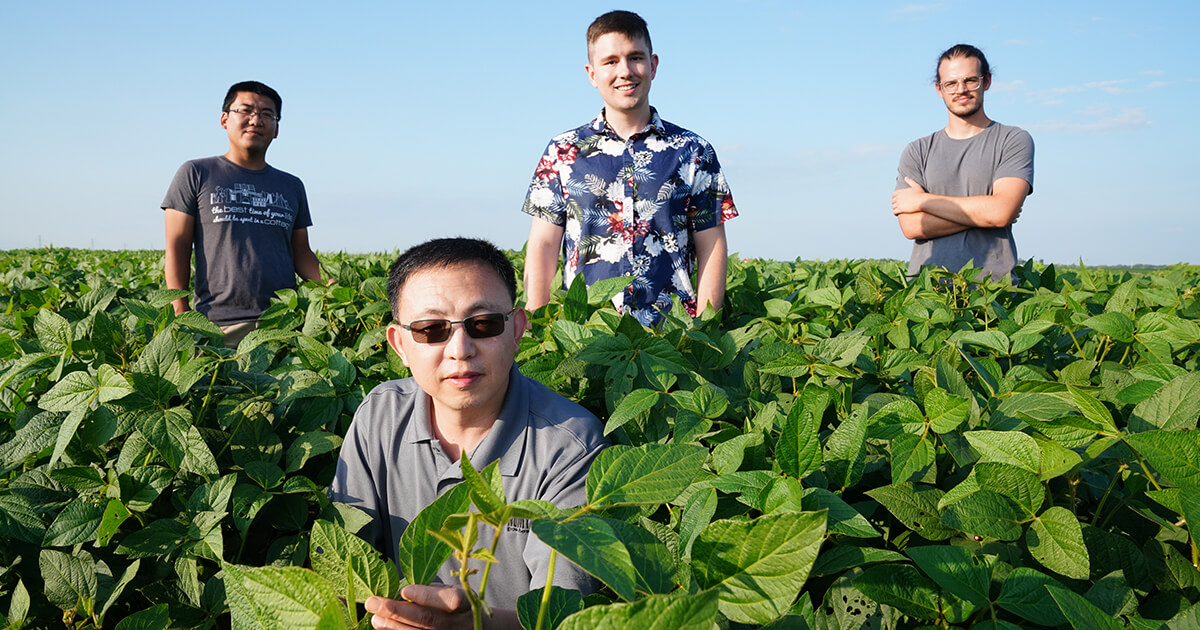
“We are working to enhance the plant’s efficiency at utilizing the atmospheric nitrogen, so that we can reduce the need for fertilizer,” says Jianxin Ma, who led the study. “This is better for the farmer and better for the environment.”
When fields become depleted of nitrogen, heavy doses of expensive and environmentally damaging fertilizer must be added to maintain yields, says Ma, a professor of agronomy in the Purdue University College of Agriculture who was recently honored by the Crop Science Society of America.
Soybeans provide one quarter of the world’s edible oil and two thirds of the protein in livestock feed, and a beneficial change in the plant could impact approximately 300 million acres of farmland worldwide, he says.
“This is an example of how science can be used to improve plants and our environment,” Ma says. “Genetic research provides important knowledge for plant breeding, which has been used to create new plant cultivars for centuries. Now we are able to do this faster, more precisely, and with a more complete understanding of how it will affect the plant and the environment.”